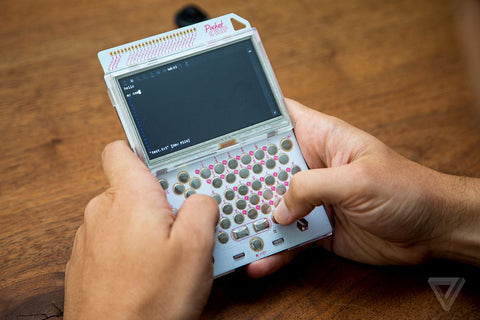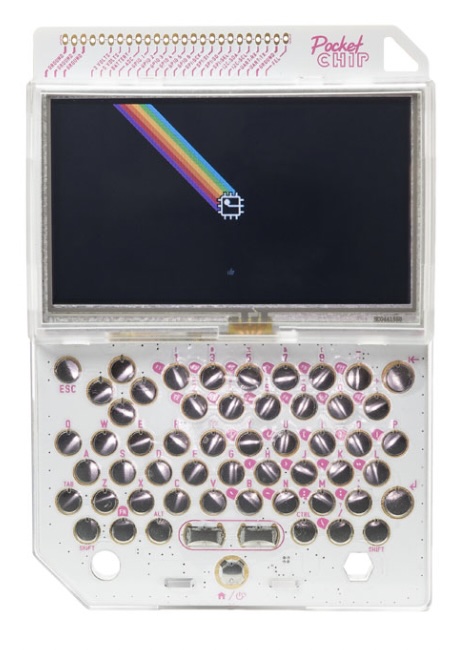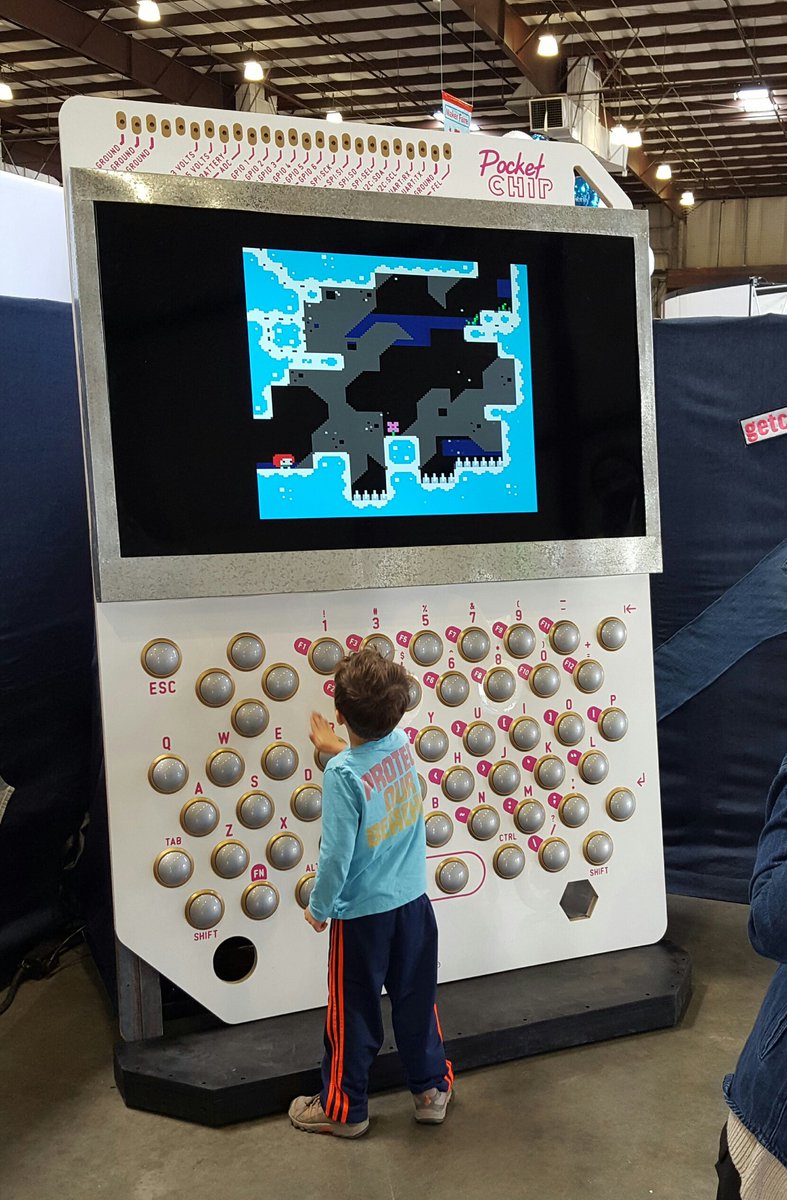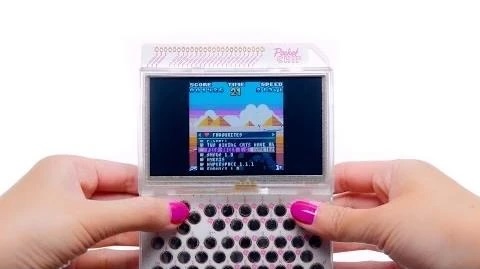PocketChip - Handheld Linux Computer




Project Overview
PocketChip was a handheld Linux computer based on the world's first $9 computer (CHIP). Designed as a Game Boy-inspired portable computing device, it featured a full QWERTY keyboard, touchscreen, and complete Linux environment in a pocketable form factor.
Product Features
• Powered by CHIP - the world's first $9 computer
• 4.3" resistive touchscreen display
• Full QWERTY keyboard with gaming controls
• Built-in WiFi and Bluetooth connectivity
• Rechargeable battery with USB charging
• Pre-loaded with games and development tools
• Open source hardware and software
Gaming Integration
• PICO-8 fantasy console pre-installed
• Celeste game implementation (later ported to Nintendo Switch)
• Retro gaming emulation capabilities
• Game development environment
• Community-created games and applications
Maker Faire Impact
Created "Mega PocketChip" - a giant, fully functional version for Maker Faire:
• All keyboard buttons functional
• Powered by single $9 CHIP computer
• Interactive demonstration for attendees
• Incredible community engagement
• Young users creating and playing games
Community Development
• Open source design encouraged community modifications
• Community-built keyboard cases and accessories
• Active developer community creating applications
• Educational tool for learning programming
• Hacker-friendly design philosophy
Technical Innovation
• ARM-based Linux in extremely compact form factor
• Custom PCB design optimized for handheld use
• Integration of touchscreen and physical controls
• Power management for portable operation
• GPIO access for hardware hacking
Market Impact
PocketChip demonstrated the viability of affordable handheld Linux computers, predating and influencing later devices like the Steam Deck. It proved that there was significant demand for hackable, programmable handheld computers.
Legacy
Though Next Thing Company eventually became insolvent, PocketChip established important precedents for open-source handheld computing and influenced the design of subsequent portable Linux devices.
 Rauchwerk Research
Rauchwerk Research